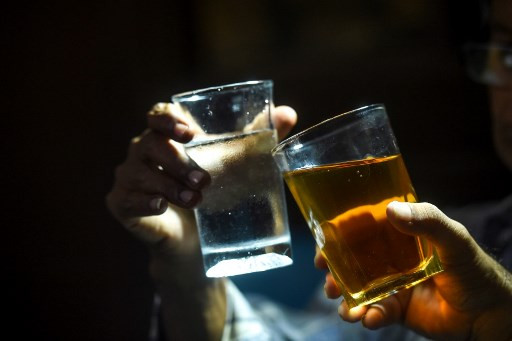Popular Reads
Top Results
Can't find what you're looking for?
View all search resultsPopular Reads
Top Results
Can't find what you're looking for?
View all search resultsAlcohol producers brace for regulation, reject prohibition
Certain House of Representatives factions are seeking to resurrect a long-stalled alcohol prohibition bill.
Change text size
Gift Premium Articles
to Anyone
A
s certain House of Representatives factions seek to resurrect a long-stalled alcohol prohibition bill, alcoholic beverage companies are preparing for additional regulations but oppose outright prohibition.
Of the 21 lawmakers that spearheaded the effort to revive the bill, 18 were from the Islam-based United Development Party (PPP), two were from the Prosperous Justice Party (PKS) and one was from the nationalist Gerindra party. They requested that the House Legislation Body (Baleg) resume deliberations on the bill, which was put on hold in 2016.
Indonesian Alcoholic Beverages Producers Association (APBMI) head Stefanus said that in principle, he was not opposed to the supervision and control of alcohol – if that was what the House aiming for.
“But we should not fully prohibit alcoholic beverages. If we do the latter, we will be like America in the early 1900s when liquor was prohibited. The result was that illegal [alcoholic] products boomed, causing problems with the police and even the formation of mafias,” Stefanus told The Jakarta Post on Friday.
He said the total prohibition of alcohol would hurt restaurants, cafés and tourism-related businesses, which employed a number of people and were already struggling.
Indonesian Malt Beverage Producers Association (GIMMI) executive committee member Ika Noviera said the association was monitoring the deliberation of the bill. She declined to comment further.
Indonesian Communion of Churches (PGI) chairman Gomar Goltum was not in favor of the possible ban.
“The way I see it, alcohol probation bill is very infantile, as if everything must be prohibited. How can we be responsible adults if everything if prohibited?” Gomar said in a written statement on Friday.
He said that consistent law enforcement in the control and supervision of alcoholic drinks was better than absolute prohibition.
“Not everything must be regulated by law. Not to mention that Indonesia has very diverse traditions regarding alcoholic drinks,” he said, adding that prohibition would not solve alcohol abuse.
Baleg chairman Supratman Andi Atgas said the bill was still in the early stages of deliberation and had no established timeline to be made into law.
Now that the bill’s sponsors had submitted their explanation of the bill, he said, the House was discussing whether its substance was sound and whether existing regulations were in conflict with it. He said the House was also discussing whether the bill would actually serve the people.
“In principle, we should regulate alcoholic beverages. Whether it should be in the form of prohibition or something else is still debatable,” Supratman told the Post.
He said the House would need to consult alcoholic beverage producers and tourism associations for further input.
Contentious articles in the alcohol prohibition bill
Article 4
(1) Prohibited alcoholic drinks include type A alcohol, with 1 percent to 5 percent ethanol content, type B alcohol, with 5 percent to 20 percent ethanol content, and type C alcohol, with 20 percent to 55 percent ethanol content.
(2) The alcoholic drinks prohibited in line (1) include traditionally brewed alcoholic drinks and mixed alcoholic drinks.
Article 5
No one may produce type A, type B, type C, traditional or mixed alcoholic drinks.
Article 6
No one may store, distribute or sell type A, type B, type C, traditional or mixed alcoholic drinks.
Article 7
No one may consume type A, type B, type C, traditional or mixed alcoholic drinks.
Article 8
Alcohol prohibition does not apply to traditional rituals, religious ceremonies, tourists, pharmaceutical uses and establishments with special permits.
Article 9
The government is required to use 20 percent of tax revenue from alcoholic drinks to educate the public about the dangers of alcoholic drinks and to rehabilitate alcoholics.
Article 17
The public, individually or in groups, can participate in enforcing alcohol prohibition by reporting to the authorities if they find the production, distribution, sale and/or consumption of alcoholic drinks. Anyone participating in enforcing alcohol prohibition will be protected by law.
Article 18
Anyone found producing alcoholic drinks will face a maximum of 10 years in prison and Rp 1 billion in fines.
Article 19
Anyone found storing, distributing or selling alcoholic drinks will a face maximum of 10 years of prison and Rp 1 billion in fines.
Article 20
Anyone found consuming alcoholic drinks will face a maximum of 2 years in prison and Rp 50 million in fines.
Article 21
Anyone found disrupting public order as a result of consuming alcoholic drinks will a face maximum of five years in prison and Rp 100 million in fines.










